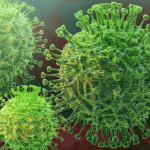
How Long Will It Take to Develop a Vaccine for Coronavirus?
- Several groups are working on a vaccine for the new coronavirus, but there’s no guarantee that it will be ready before the end of the current outbreak.
- One group says they may have an experimental vaccine ready for initial testing in just a month.
- But experts caution this expedited timeline doesn’t always allow for careful evaluation of the safety and effectiveness of the vaccines.
Since 2003 the world has faced three outbreaks caused by coronaviruses — Severe Acute Respiratory Syndrome (SARS), Middle East Respiratory Syndrome (MERS), and now the current outbreak caused by a virus known as 2019-nCoV.
Scientists have yet to find a way to stop these outbreaks before they start. But over the past 17 years, they have drastically shortened the time it takes to develop a vaccine after a new virus emerges.
This is largely due to technological advances and a greater commitment by governments and nonprofits to funding research on emerging infectious diseases.
Scientists are already racing to develop a vaccine for 2019-nCoV — a feat that experts say is technically possible, but still may not come in time to help during this outbreak.
Faster vaccine development
Science news reports that several groups started working on a vaccine for 2019-nCoV shortly after Chinese scientists shared the virus’s genetic sequence in an online public database on Jan. 10.
Three of these groups are funded by Coalition for Epidemic Preparedness Innovations (CEPI), a nonprofit formed in 2017 to fund vaccine development for emerging infectious diseases.
Inovio Pharmaceuticals Inc. and Moderna Inc. both say they will have a vaccine ready for testing in animals in one month.
Moderna, which is working with the U.S. National Institute of Allergy and Infectious Diseases, estimates that it could have a vaccine ready for a phase one clinical trial in people in three months.
Moderna and Inovio are both using a newer vaccine technology based on specific DNA or messenger RNA (mRNA) sequences of the virus. The chosen sequence codes for a viral protein, such as one on the surface of the virus.
This type of vaccine can still elicit a protective immune response in a person. But because the protein is only a small piece of the virus, it doesn’t cause illness.
Scientists using this method can also start designing a vaccine as soon as they have the virus’s genetic sequence. With other methods, they would need to work with actual virus samples in the lab.
“The nice thing about this technology is that it bypasses many of the traditional steps to vaccine discovery and development. So it’s very fast,” said Dr. Jon Andrus, adjunct professor of global vaccinology and vaccine policy at the Milken Institute School of Public Health of George Washington University.
The third group, at the University of Queensland in Australia, is aiming to have a vaccine ready for testing in people in 16 weeks. They are developing a vaccine by growing viral proteins in cell cultures.
Drugmaker Johnson and Johnson, which is not funded by CEPI, started working on a vaccine two weeks ago, according to CNBC. The company’s chief scientific officer estimates they could have a vaccine ready for market within a year.
Clinical trials are “rate-limiting” step
Dr. Stanley Perlman, a professor of microbiology and immunology and pediatrics at the University of Iowa, said these rapid timelines may be “feasible” for development of the vaccine. But they may be too fast for careful evaluation of the safety and effectiveness of the vaccines.
Still, “the platforms [being used to develop] these vaccines have been tested before, so are likely to be as safe as when used previously,” said Perlman. “Given the urgency of preventing further spread of the virus, this [rapid pace] is understandable.”
Once scientists have created potential candidates, the vaccines still have to go through animal testing and small and large clinical trials in people. These stages are needed to make sure the vaccines work and are safe.
Dr. Peter Hotez, professor and dean of the National School of Tropical Medicine at Baylor College of Medicine in Houston and co-director of the Texas Children’s Hospital Center for Vaccine Development, said you can only speed up animal and clinical trials so much.
“In the end, these steps take time,” he said. “So that’s going to be the rate-limiting step in determining whether there’s going to be a vaccine available in time for this epidemic.”
Hotez said there are some things you can do to make this testing go a little faster, like running some of the clinical trials in parallel. “But in the end, you’re still talking weeks to months,” he said.
Vaccinating people at high risk
During the 2002-2003 SARS outbreak, it took about 20 months for a vaccine to be ready for testing in people.
By then, the outbreak had been contained with public health measures like isolating infected people, setting up quarantines, and identifying people who have come in contact with those who are sick.
These steps are already being done in the current outbreak. Whether these can contain 2019-nCoV depends on many factors, some of which are still unknown — like how quickly the virus spreads and how serious the illness it causes is.
“Not being able to predict how an outbreak is going to go, it’s always important to address the potential for vaccine development,” said Andrus. “When vaccines work, they’re excellent. In many cases, they’re the best way to prevent disease.”
Even if a vaccine makes it through all the rounds of testing, it’s unlikely that drugmakers can manufacture enough vaccine to protect everyone who might be exposed to the virus.
Moderna, which currently has the largest manufacturing capacity of the three CEPI-funded groups, thinks it could produce 100 million doses in a year, according to Science.
That means health officials would need to prioritize who gets the vaccine. This is based on factors like who would have the most severe symptoms and who is most likely to spread the virus.
With the current outbreak, the World Health Organization estimates that only around 20 percent of people infected developed a serious illness.
Andrus says many of those who have died from infection have been older adults or those with chronic medical conditions. These are the people you would want to target with a vaccine.
Healthcare workers on the front lines of an outbreak are another group that you want to keep an eye on.
“If healthcare workers become infected, they can amplify the outbreak because they’re in contact with so many patients, particularly individuals who might have chronic disease,” said Andrus.
This is especially true since people can spread the virus even before they have symptoms.
Looking to the future
Given that we’ve already had three coronavirus outbreaks since 2003, “it’s clear that these beta-coronaviruses are going to become pretty regular phenomenon,” said Hotez.
As a result, some experts say it’s time to develop a universal coronavirus vaccine that would work against all viruses in this family — even the ones we don’t know about yet.
Perlman said different types of coronaviruses share some of the same features, so a universal vaccine could theoretically be developed. But “we know from efforts to develop HIV or influenza vaccines, that this is not easy,” he said.
A universal vaccine, though, is not the only option to protect us from future outbreaks.
“We may need to build up an infrastructure for coronaviruses that more or less resembles what we have for flu right now,” said Hotez.
With flu, scientists continually monitor which influenza virus strains are active around the world. They then predict which ones will be active during the upcoming flu season and use this to develop the annual flu vaccine.
Coronaviruses are a little different, but Hotez thinks scientists could develop multiple vaccine candidates for use when an outbreak happens.
“You could potentially have a coronavirus vaccine stockpiled and ready to go,” he said. “Even if it’s not a perfect match — just like the flu vaccine isn’t for the flu — it could still do a lot to reduce hospitalization and mortality.”






